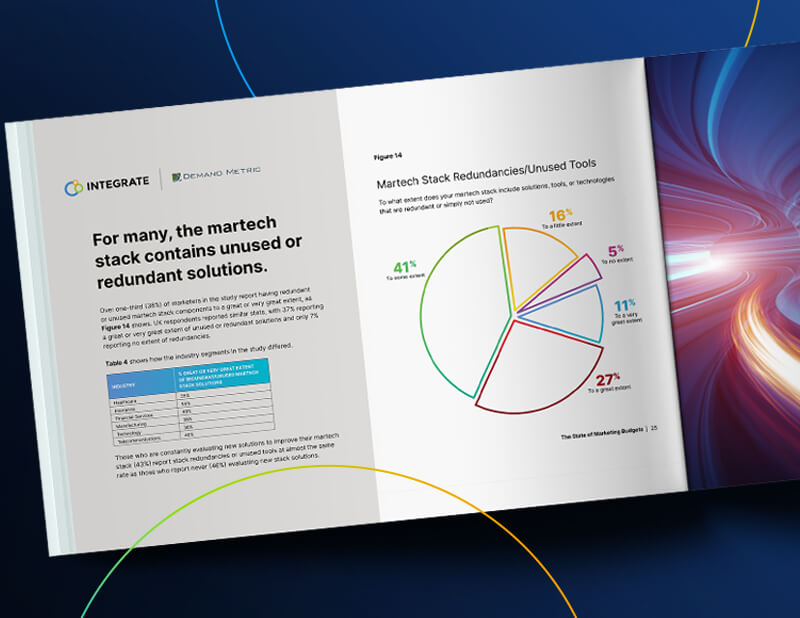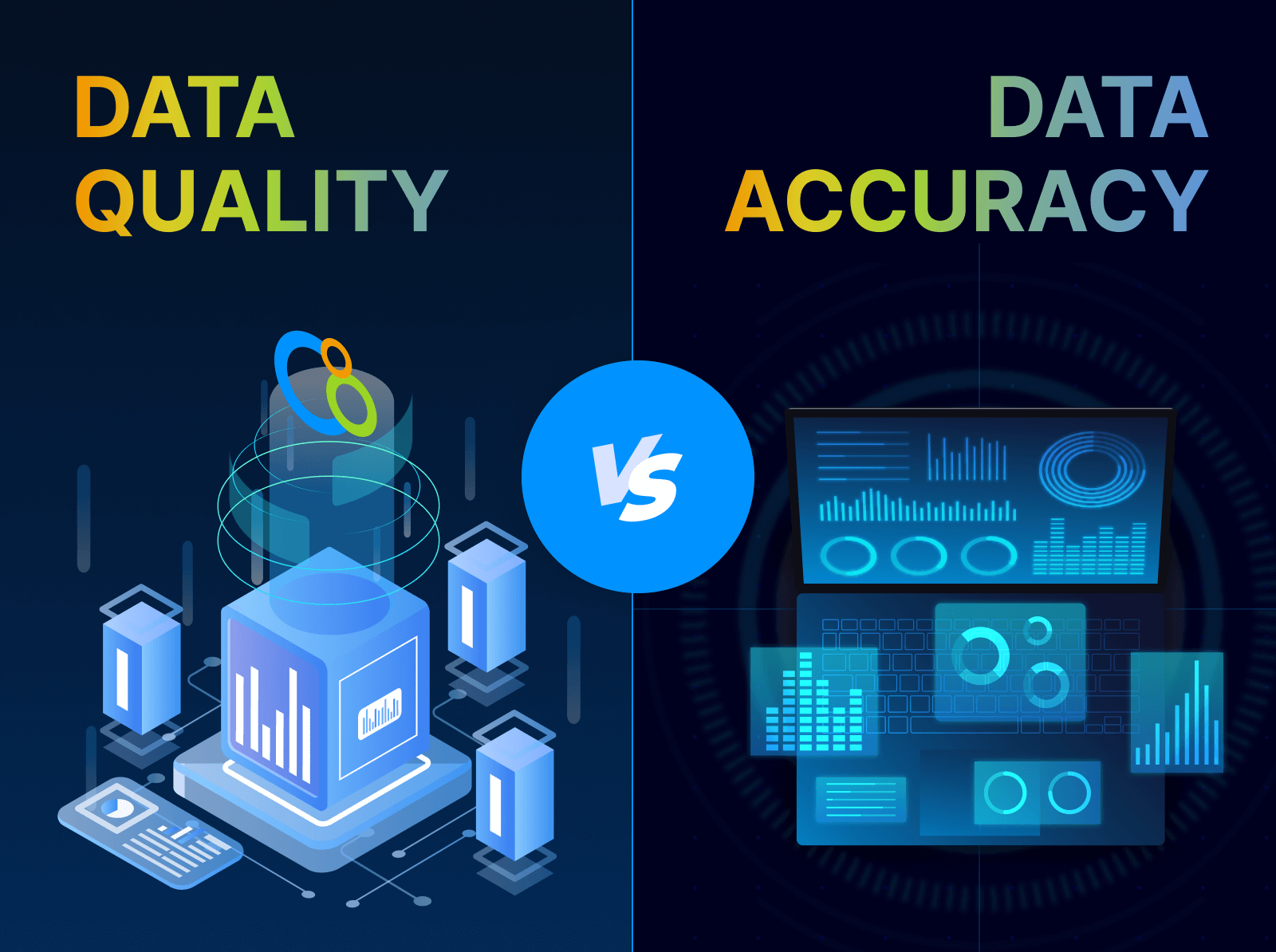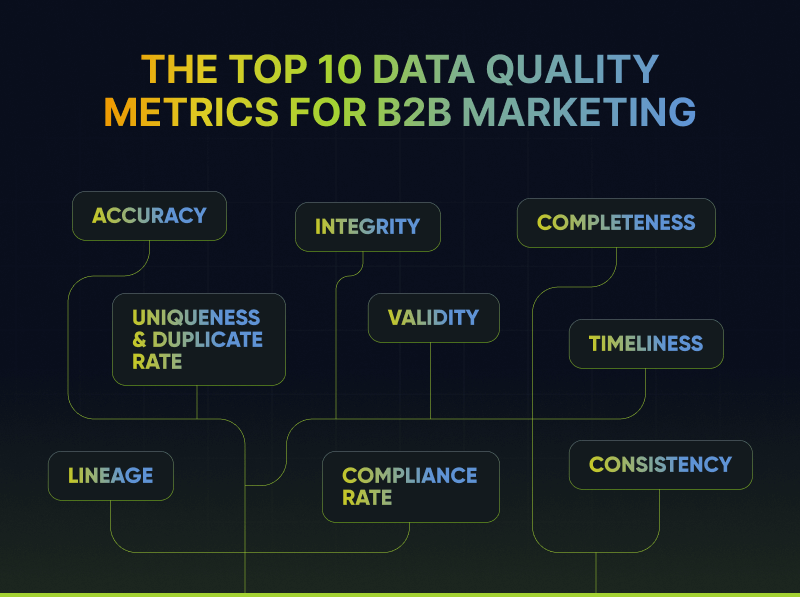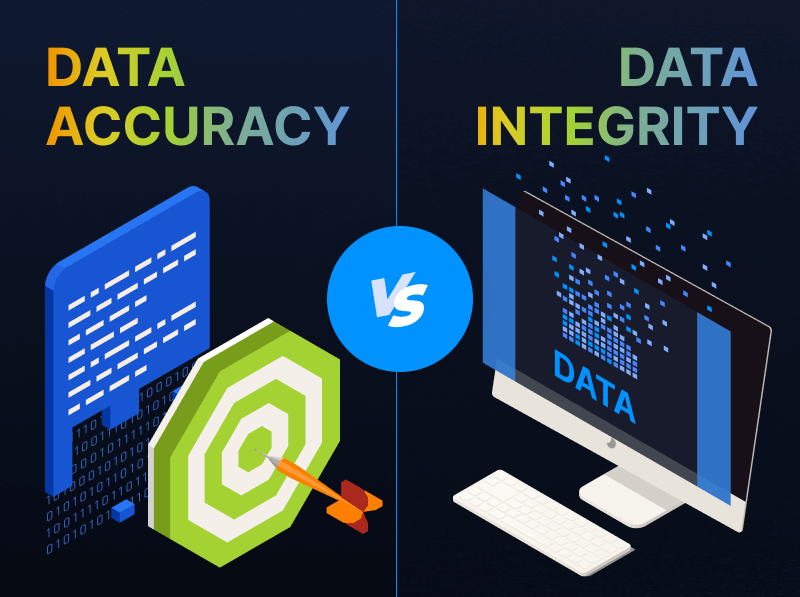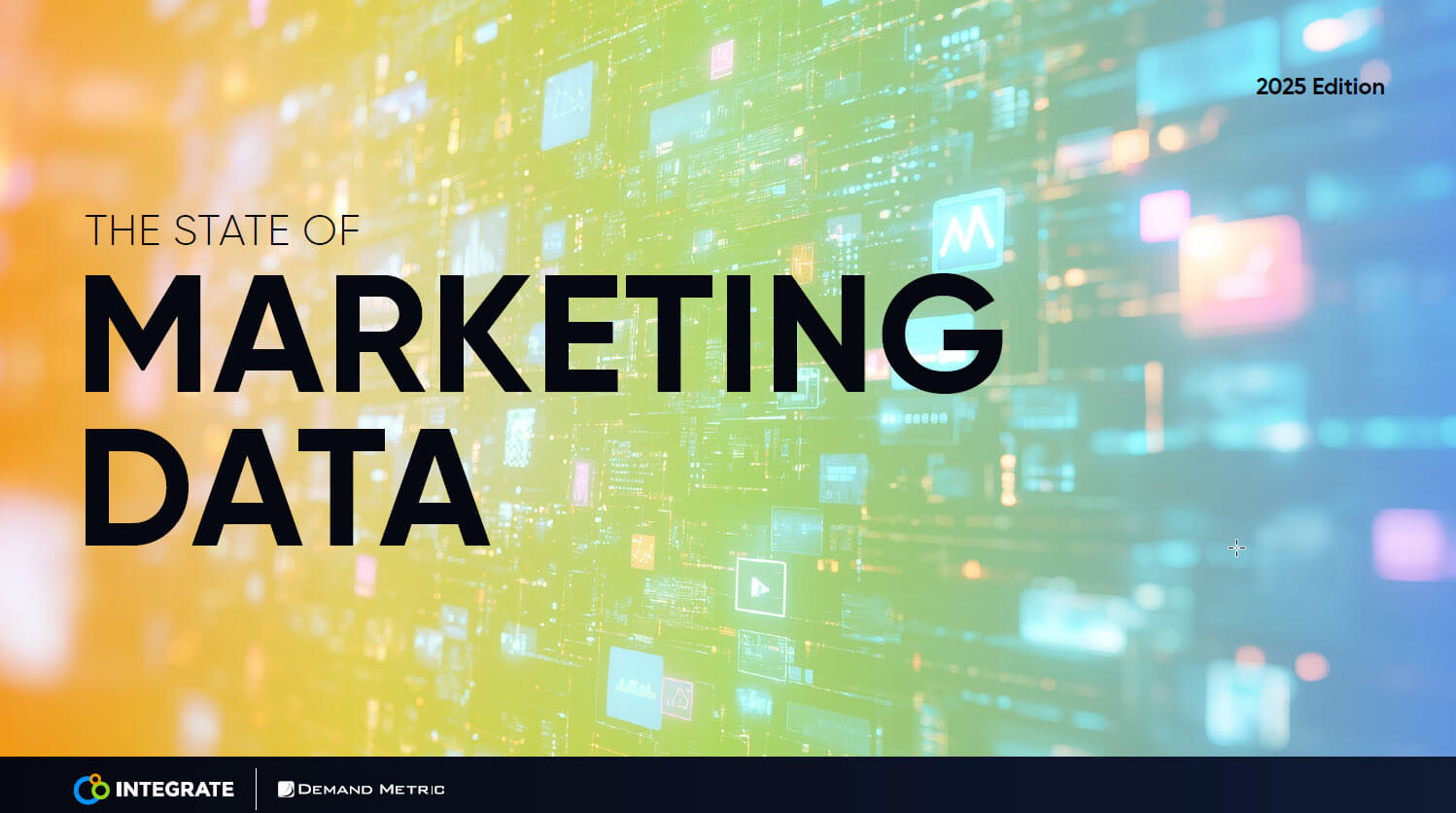2022 State of B2B Marketing Budgets Survey: 3 Ways to Succeed in 2023
It’s been another tumultuous year for B2B. With economic uncertainty looming, many B2B marketers have experienced budgets cut, headcount cuts, and been forced to rethink their strategies. And as we move into 2023 budget season, we started to wonder how B2B marketers around the world were faring and how they were planning to manage their budgets—including martech and ABM—for 2023.
- Have marketers experienced budget and headcount cuts in the second half of 2022 as compared to earlier in the year?
- What areas of marketing are they investing in more? Less?
- What strategies are marketers focusing on today and into the future? Account-based marketing? Buyer-driven and cross-channel? Inbound v. Outbound?
- What opportunities exist for getting more out of your marketing technology?
- With all these factors to consider, what is the outlook for marketing budgets in 2023? Are marketers planning for larger budgets in 2023? Are they staying flat or being reduced, and why?
To gain some clarity, we decided to partner with our friends at Demand Metric to conduct a survey aimed specifically at marketing leaders to address these questions. We received over 500 responses across the US and UK, providing us with various ways to analyze the data. The survey results confirmed that B2B marketers were increasingly tasked with accomplishing more with less resources. More specifically, two-thirds of respondents are experiencing these expectations despite inflation and recession driving budget cuts.
What’s most reassuring? A majority of marketers are optimistic about the upcoming year—80% to be exact. We’re excited to get this report in front of industry leaders and would like to share 3 ways b2b marketers can succeed in 2023 based on the results. Read more below.
Download the full report here.
1. Manage Your Martech Stack with Precision
One of the major findings of the B2B Marketing Budgets Survey was that less than half of marketers feel that their martech stack supports the effort of their marketing teams well. Marketers’ options are overwhelming these days, with nearly 10,000 marketing technology solutions currently available to choose from. It’s more critical than ever for B2B marketers to ensure martech budgets are used effectively. They can’t afford not to, as our report shows.
In the survey, B2B marketers were asked, “To what extent does your martech stack include solutions, tools, or technologies that are redundant or simply not used?” Nearly all (95%) reported some level of redundancy within their marketing tech stack.
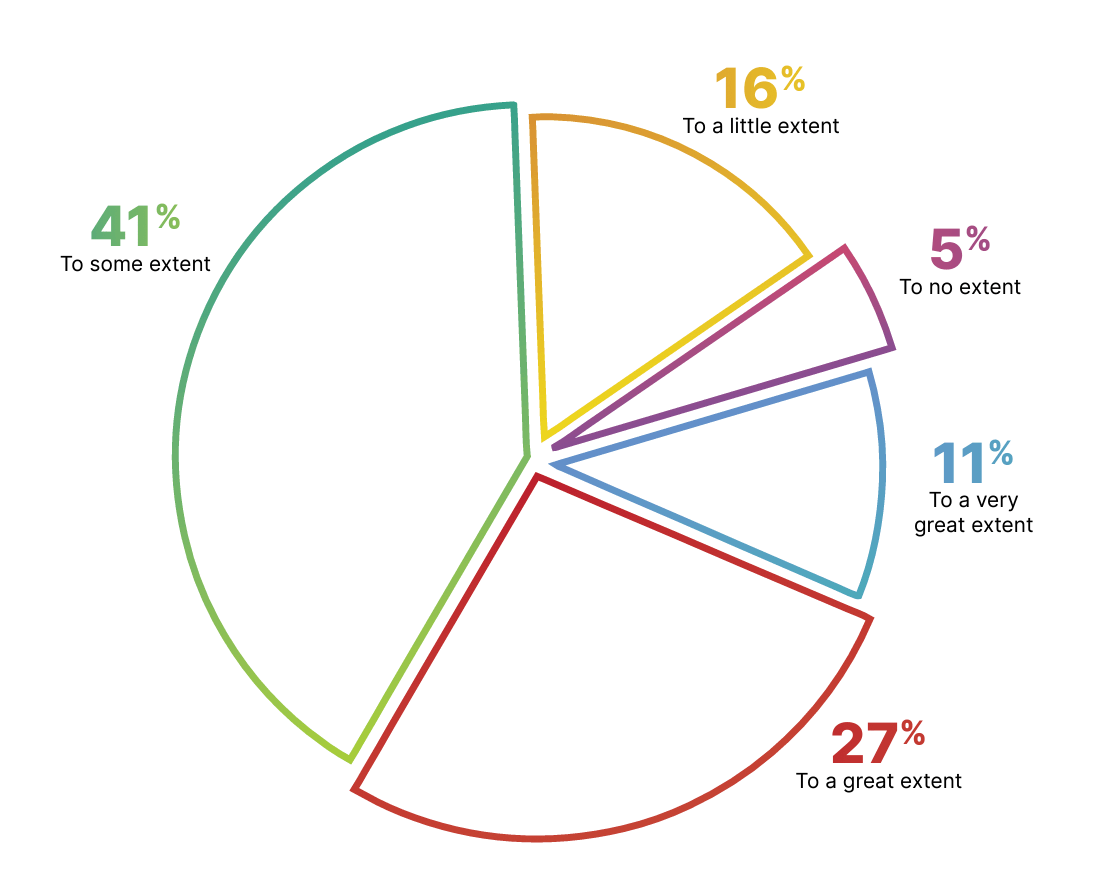
To maximize efficiency of their martech stack, marketers should be evaluating solutions to improve their stack on a regular basis. In fact, marketers who feel their martech stack supports their work well or very well are almost twice as likely (31%) to be constantly evaluating solutions to improve their stack compared to those who feel their stack provides poor or very poor support (17%) for their work.
Marketers need to make sure they’re asking the right questions when evaluating their marketing technology:
- Have you over-invested in siloed tech that requires data-stitching from various systems?
- Are you able to gain clean, intelligent leads from demand campaigns, channels, and providers?
- Is your tech sophisticated enough to activate in-market ICP accounts on all the third-party channels where buyers do research?
- Can you report on and analyze performance across channels like events, content syndication, social and display?
It’s critical to get your tech stack in order to help focus efforts on orchestrating effective omnichannel campaigns that accommodate your buyers on their ever-increasingly complicated journeys.
2. Move Beyond Account-Based Marketing with Buyer-Driven Cross-Channel Campaigns
B2B marketers have gained more insight into their own performance over the last several years. They understand that the journey for buyers now involves a more substantial number of touchpoints and larger buying committees. Add to this less access to key buying stakeholders, who are now researching independently, and increasing their use of self-service options and the road ahead for marketers grows ever long and winding.
Account-Based Marketing, or ABM/ABE/ABX, has become a staple for B2B marketers. A good marketing strategy requires an evolved understanding of your ideal customer profile (ICP), with marketing and sales teams aligned on driving efforts toward their target accounts.
The fact of the matter remains: Accounts don’t buy. People do.
Aligning on target accounts is great, but then how do you activate those accounts across the various channels in which you are running your marketing efforts? An effective marketing strategy should be threading together all the interactions that the individuals within a buying committee are taking on what channels, with what messaging. Shifting old ABM budgets towards precision demand marketing can have tremendous impact on activating accounts.
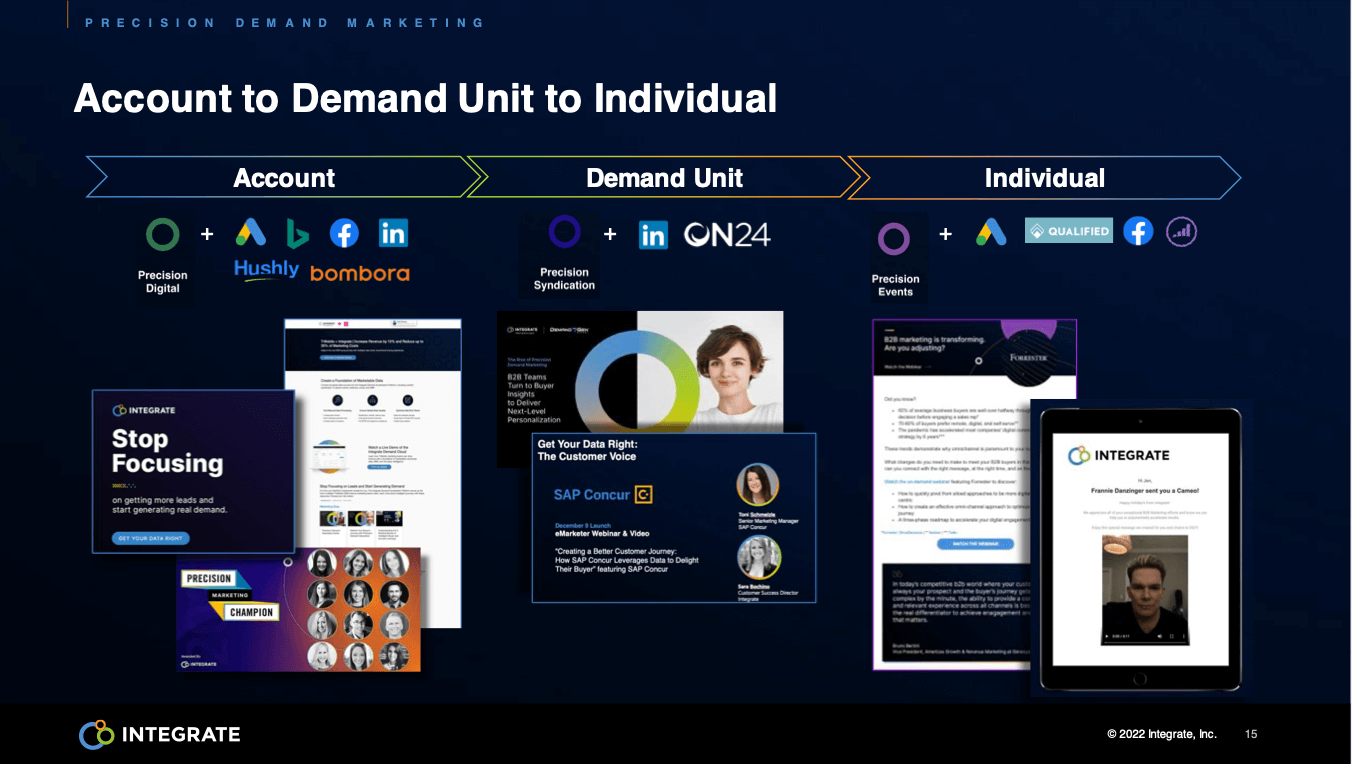
More than half of marketers surveyed (53%) shared that they plan to decrease account-based marketing budgets in 2023. So, what’s the next move?
3. Leverage Precision Demand Marketing—You Can’t Afford Anything Less
If account-based marketing investments are decreasing in 2023, where are B2B marketers planning to focus their efforts? Across almost all industry segments included in the survey, they’re focused most on:
- Buyer-Driven, Cross-Channel Campaigns – 54%
- Inbound-Always-On – 43%
- Outbound-Demand Gen – 43%
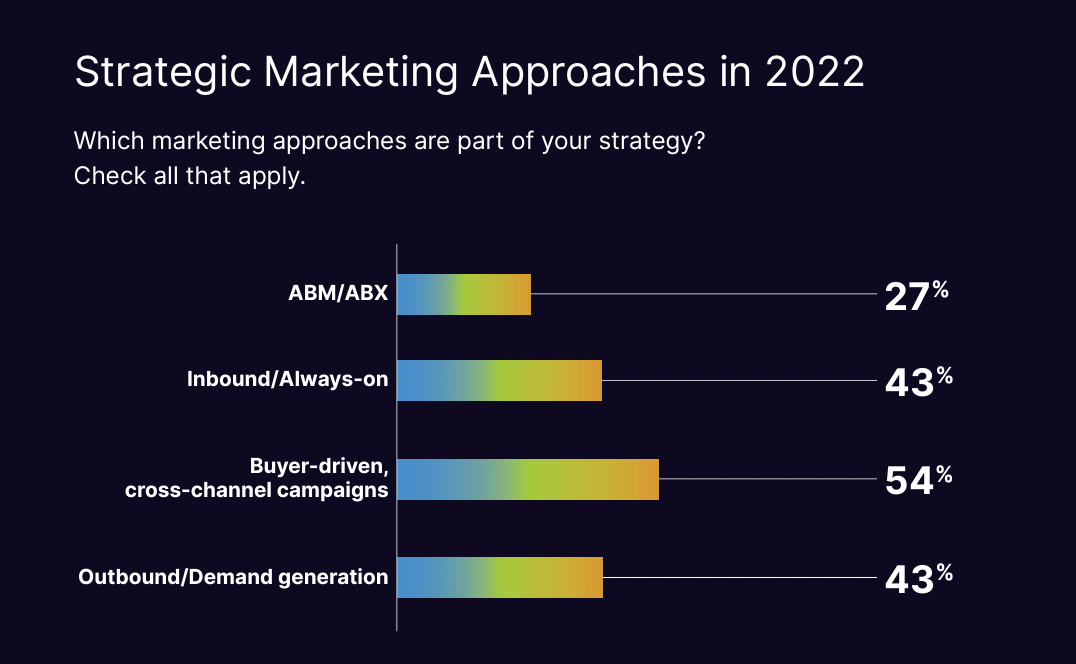
A buyer-driven, cross-channel approach like Precision Demand Marketing (PDM) is favored to help marketers succeed in the coming year. With an uncertain economic climate looming, there’s no time for waste; waste in resources, tech, people and ineffective strategies.
At Integrate, we’ve grown fond of this equation lately: ABM + Demand Gen = PDM
If marketers:
- Have identified which accounts to focus on…
- Are aligned on those accounts and the strategies to reach them across their org…
- And they’ve got proper orchestration in place with efficient tech stacks…
- And they’re scaling these efforts from 1:1, 1: Few, 1: Many…
Then they’re on the path to successfully executing an omnichannel experience for their buyers.
There’s No Time to Waste – Drive B2B Marketing Strategies with Precision in 2023
Survey respondents were asked what the biggest forces are that are driving marketing budget changes, with worries of inflation, recession and lingering pandemic issues leading the charge.
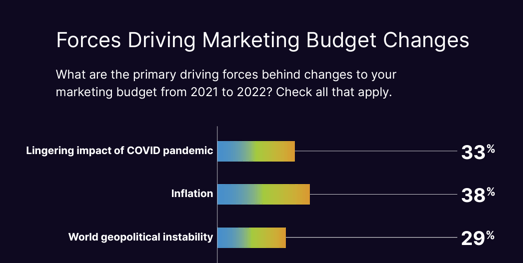
Despite this uncertainty, marketers plan to do what they do best and persevere with optimism. At Integrate, we offer a variety of tools to help navigate some of these challenges.
- #ThePDMBook – Grab the definitive guide to achieving predictable pipeline, a MUST for b2b marketers
- The Marketing Maturity Assessment – Leverage this tool to rate and gauge the capabilities of your current martech stack, as well as those of your org structure and strategies
- Cross-Channel Activation Guide – Discover how to prioritize the buyer first, orchestrating cross-channel experiences that help maximize ROI
Download the full report here.
